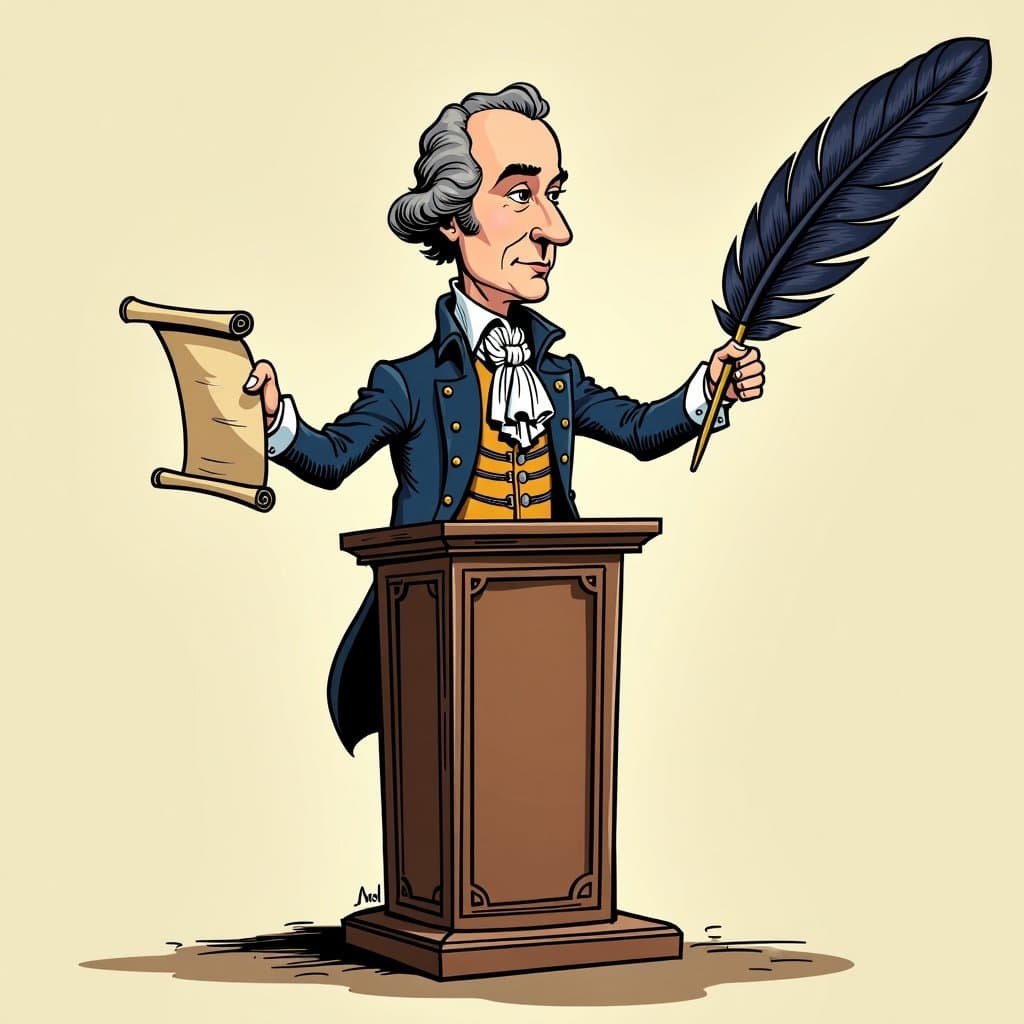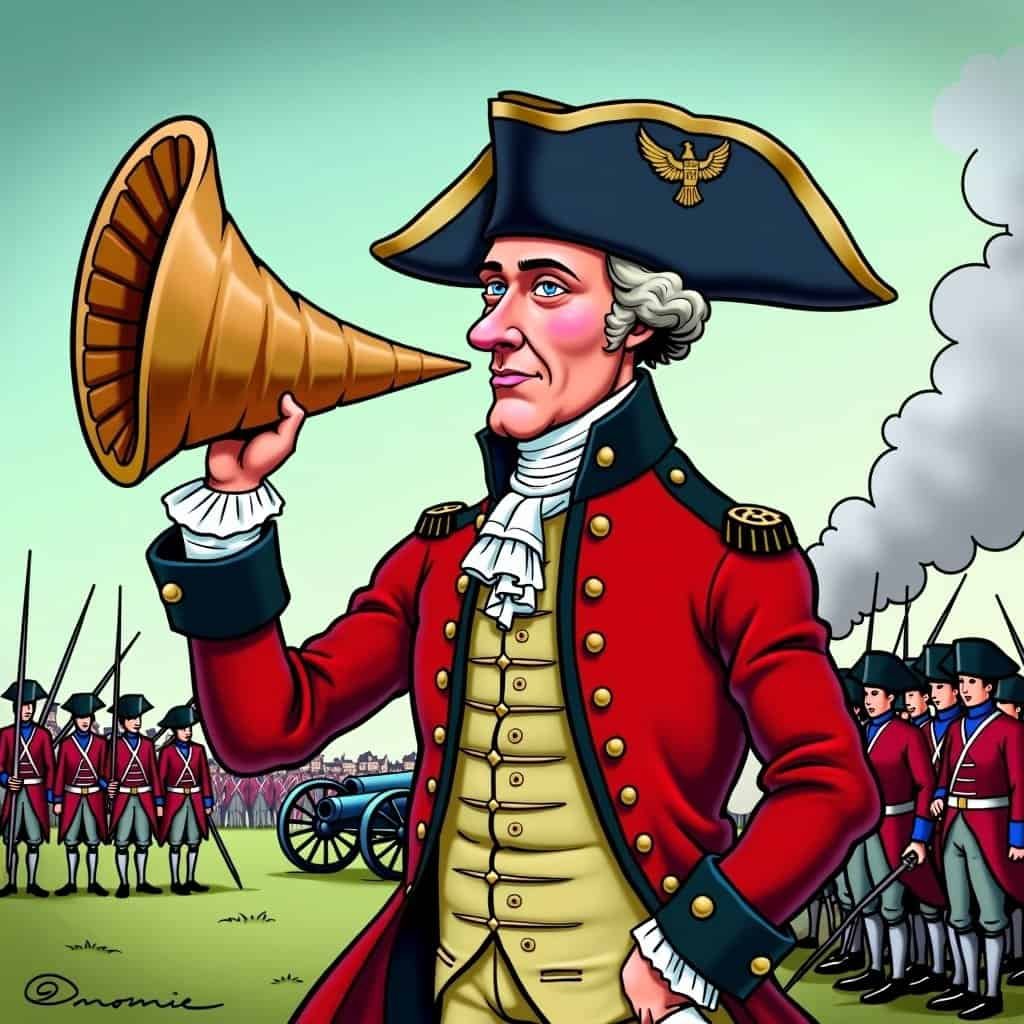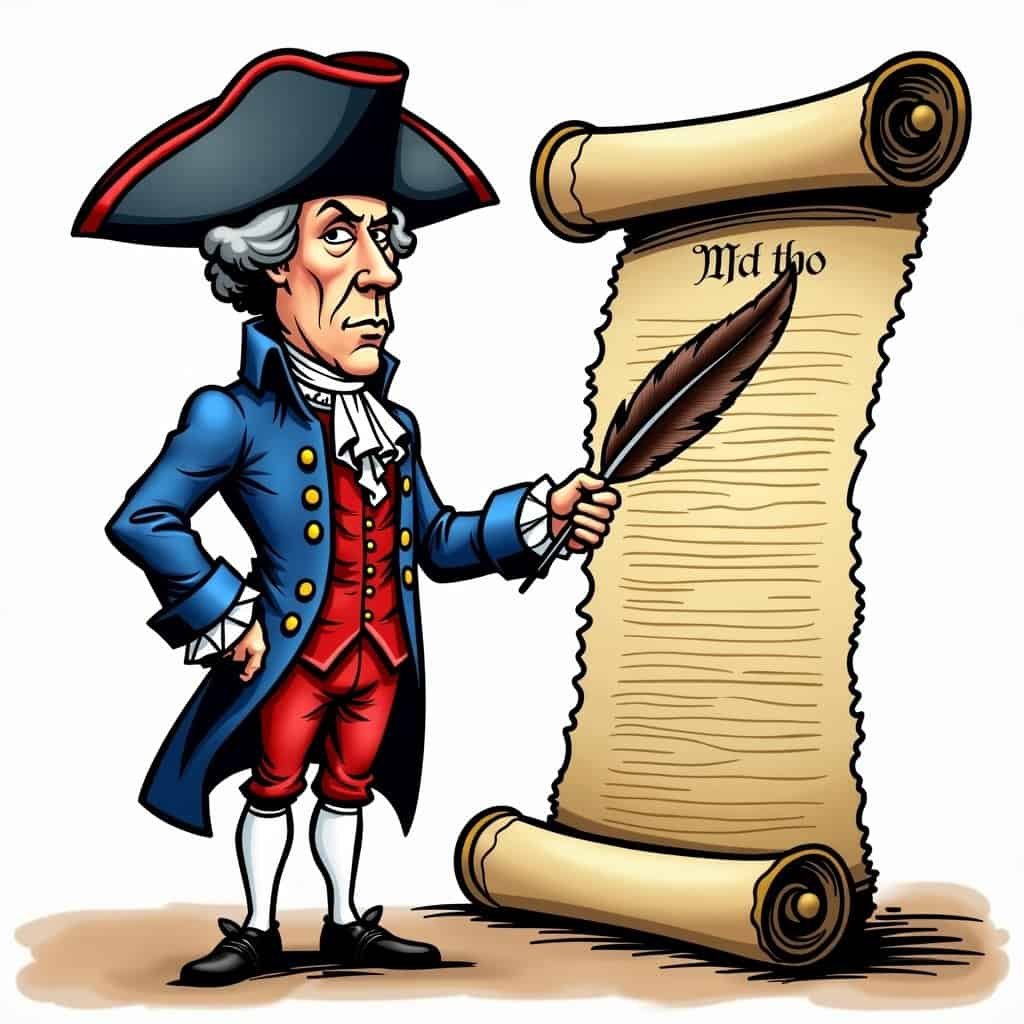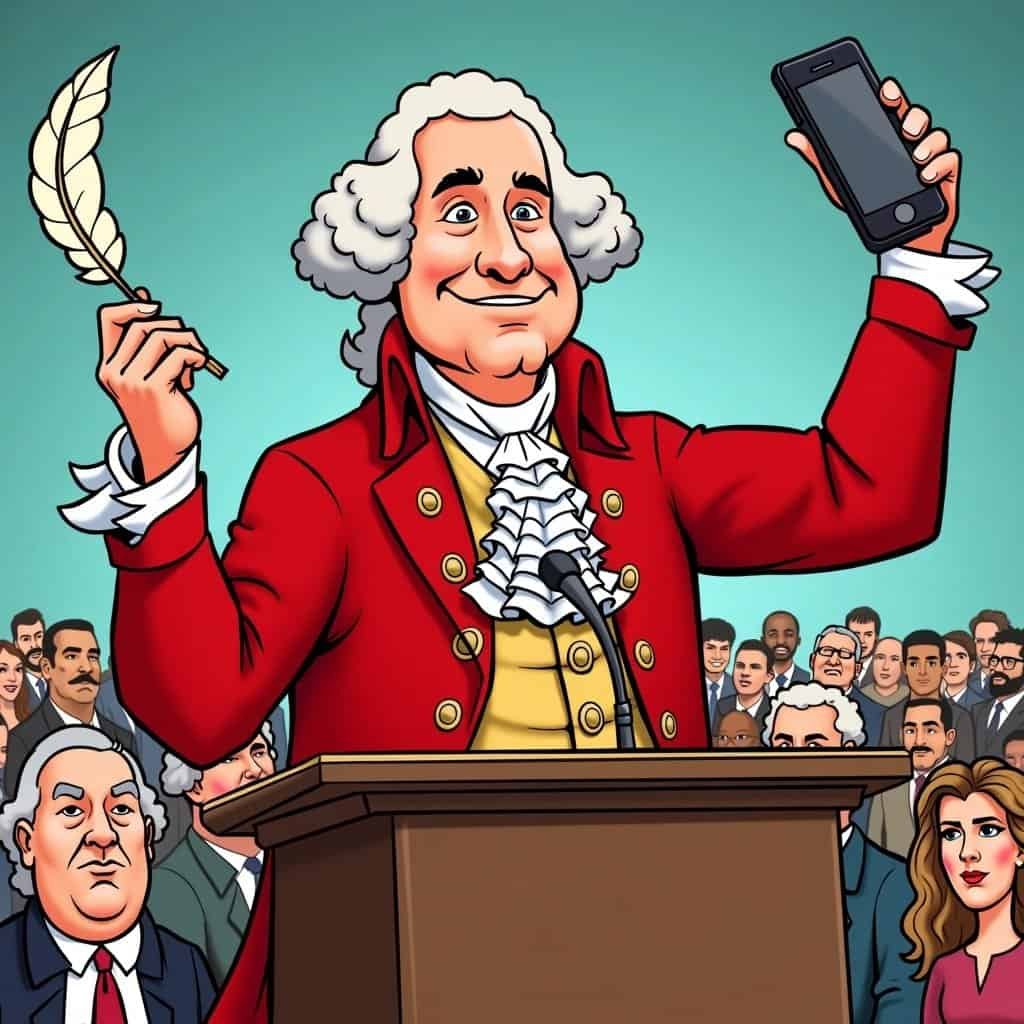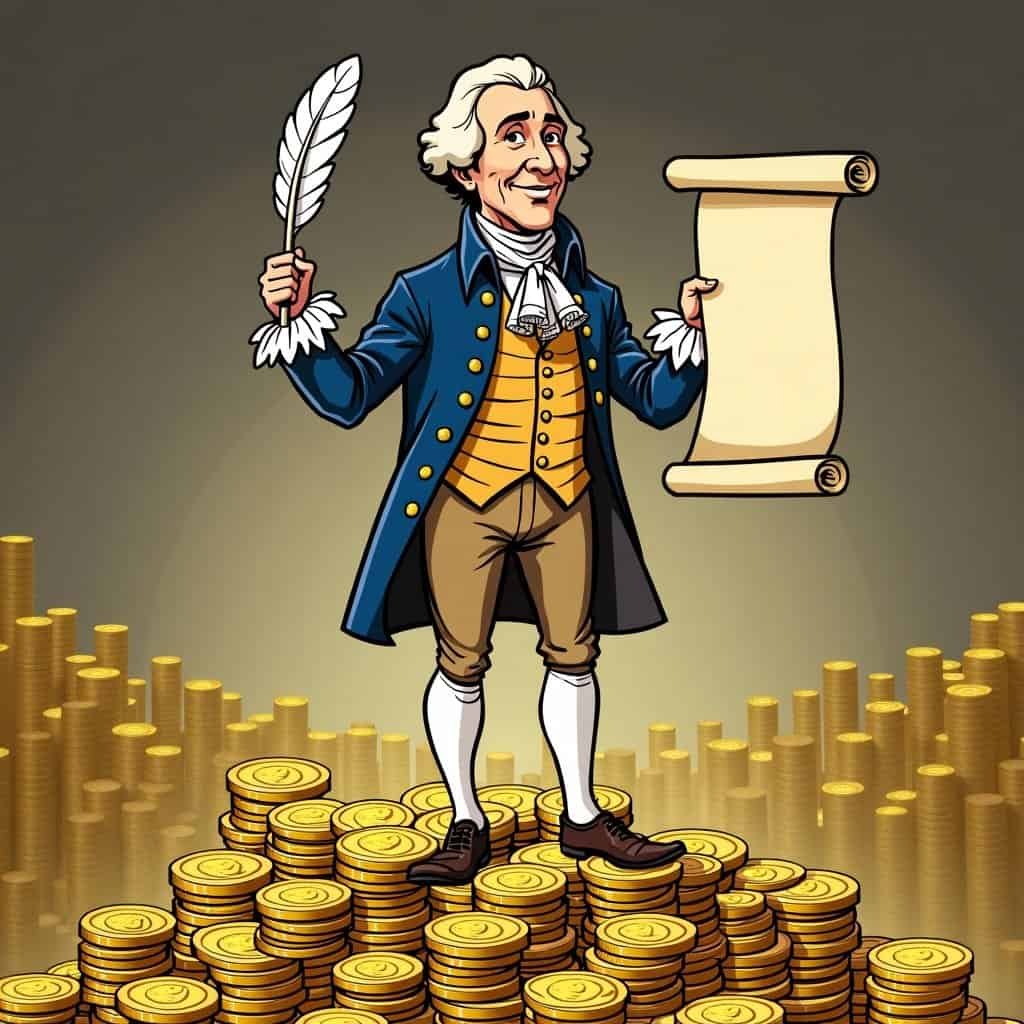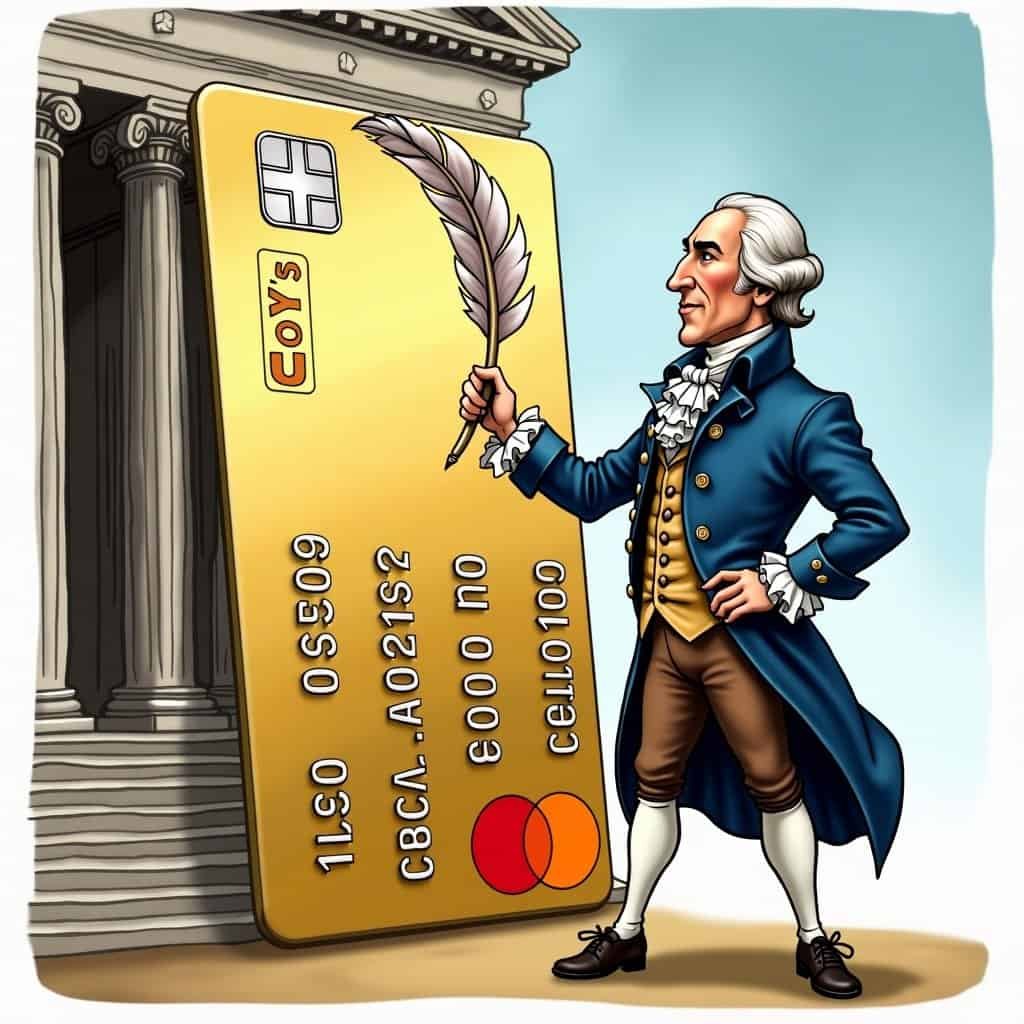When we think of Alexander Hamilton, one might picture musicals, dollar bills, and those fancy powdered wigs. But let’s set aside Broadway for a moment, because Hamilton was doing something far greater than breaking into raps—he was molding nationalism. Not the kumbaya, let’s-all-hold-hands type, but a robust, conservative model that prioritized unity, economic growth, and a truly formidable American identity.
Picture this: It’s the late 1700s, and the colonial folks, fresh off the Declaration of Independence high, were swirling in a chaotic mess like cats at a laser pointer convention. States were doing their own thing, printing inflated currency with the abandon of a kid in a candy store. Enter Hamilton, whose vision was sharper than a New York minute. Through his brilliant, albeit controversial, political maneuvering, Hamilton championed a federal government built more for strength and less for micromanaging your life choices.
Hamilton’s Genius: Beyond Political Squabbles
For those leaning Republican, Hamilton’s genius goes beyond the Hamilton vs Jefferson schoolyard spat about agrarian dreams. Hamilton understood that centralized systems of unity—like a strong economy and a resilient military—were key to keeping America truly independent and sovereign. He wasn’t about government dependency but rather about long-term individual empowerment.
Capitalism: Hamilton’s Masterpiece
Let’s talk money, because Hamilton practically turned capitalism into an art form. He dreamed up the national bank—a practical way to build wealth through various economic powerhouses rather than taxing people into oblivion. Forget wealth redistribution; Hamilton knew that economic prosperity was best achieved with opportunity for reinvestment, not government handouts. You get cash flow through private betters, not centralized programs that tie liberty down. So, every time someone cashes a check or starts a business today, they’re giving a hat tip to ol’ Hamilton.
Hamilton’s Economic Vision
- ✅ National Bank
- ✅ Economic Powerhouses
- ✅ Opportunity for Reinvestment
- ❌ Excessive Taxation
- ❌ Government Handouts
Military Prowess: More Than Just Numbers
Now, consider Hamilton’s knack for military strategy. The guy wasn’t just about fiscal rigor; he was here for national defense, too. Big military budgets weren’t just numbers on a spreadsheet—they were guarantees of liberty. He believed in preparedness and a military capable of making anyone think twice before messing with American sovereignty. In other words, Hamilton set the tone for the muscular national defense conservatives advocate today: Keep them guessing while keeping America secure.
Federal Power: A Necessary Evil?
But what about those who argue his vision gave too much power to the federal government? Sure, Hamilton wasn’t perfect. Some might think he had federalist leanings as bold as his fashion sense, but credit where it’s due. Hamilton didn’t argue for sprawling agencies monitoring everything under the sun. His focus was cohesive unity—not control for the sake of it, unlike today’s Democratic tax-and-spend culture. Sound familiar when modern-day progressives sell their costly federal programs promising equity yet end up centralizing dependency?
Hamilton’s Nationalism: Pride and Progress
At its core, Hamilton’s nationalism was about pride—American pride. He envisioned an economy stitched together by hard work and innovation, not bogged down by excessive government-induced paperwork. His call for a strong military? That’s the battle cry of a strategist who values sovereignty over endless meetings about feelings.
So conservatives, dust off your tricorn hats; Alexander Hamilton deserves your applause. He’s proof that nationalism doesn’t have to be a contentious term for online debates. America doesn’t need dependency politics; it needs bold visionaries like Hamilton to not only dream big but build bigger. And isn’t it refreshing to know that one of history’s top ten founding fathers was rolling his eyes long before government overreach became today’s cottage industry? Well played, Hamilton, well played.
Table of Contents
- Hamilton’s Genius: Beyond Political Squabbles
- Capitalism: Hamilton’s Masterpiece
- Military Prowess: More Than Just Numbers
- Federal Power: A Necessary Evil?
- Hamilton’s Nationalism: Pride and Progress
